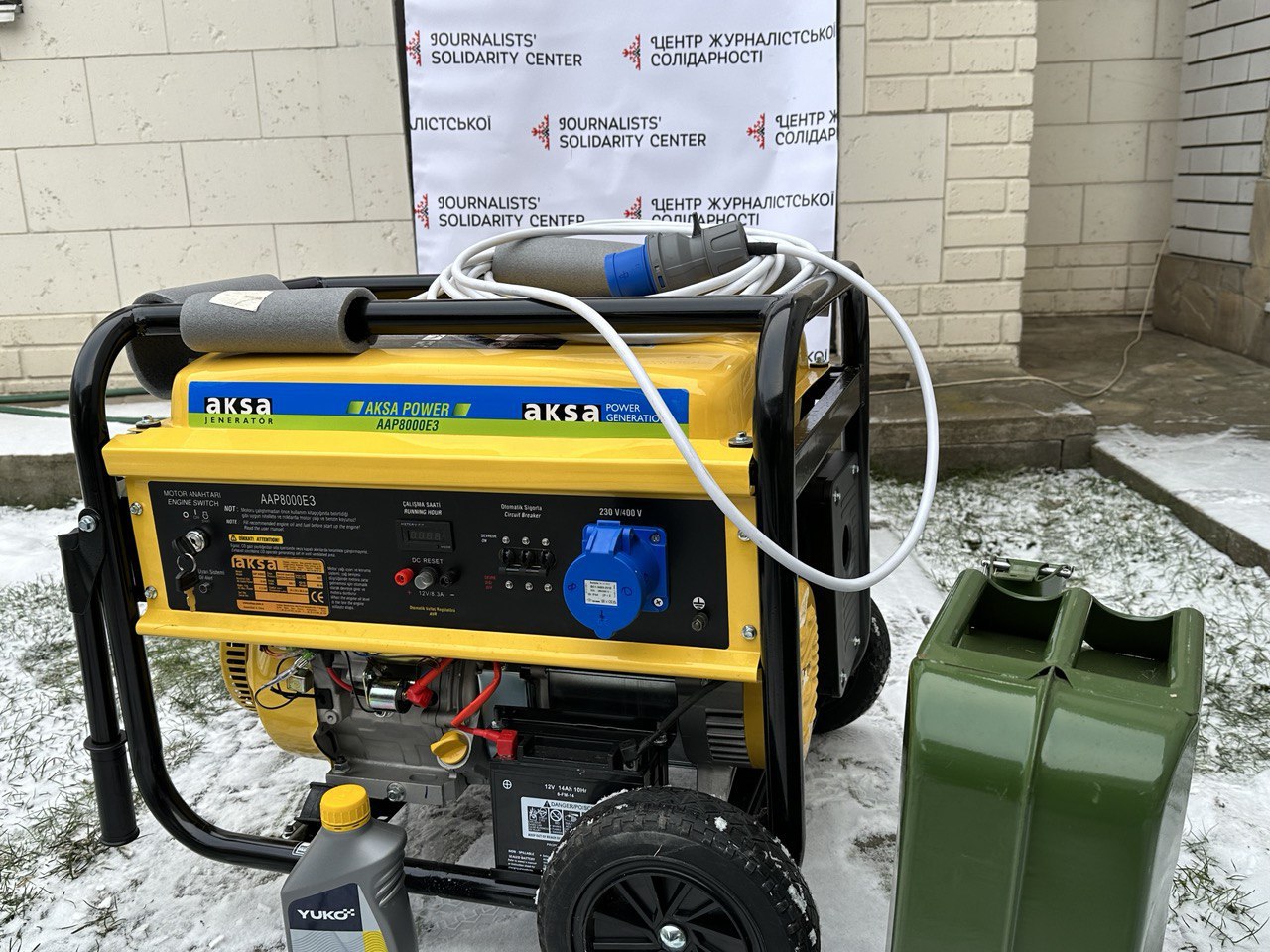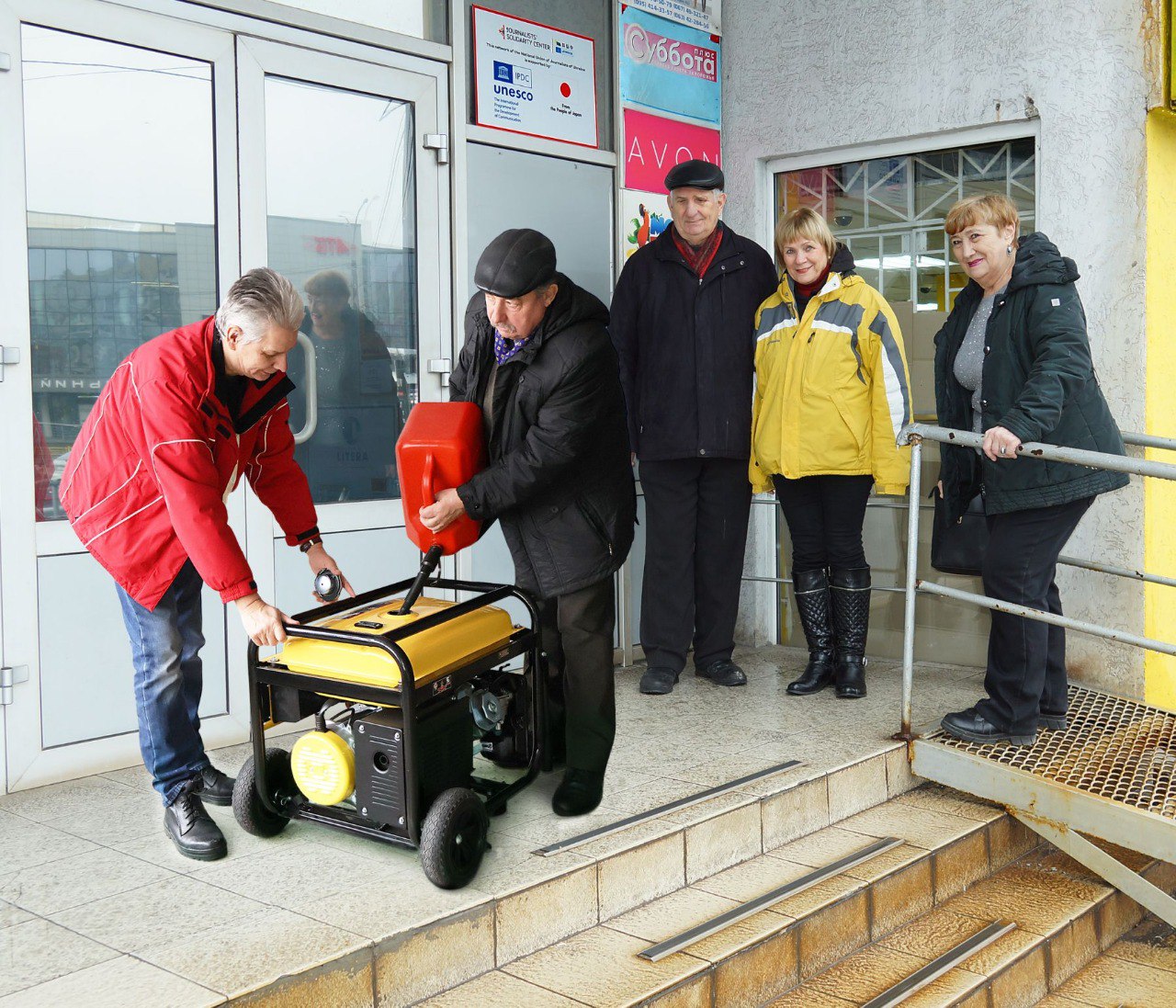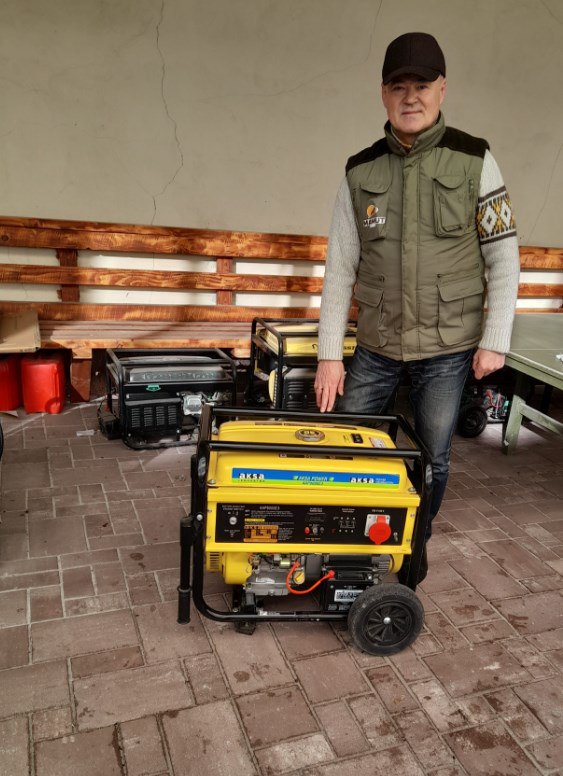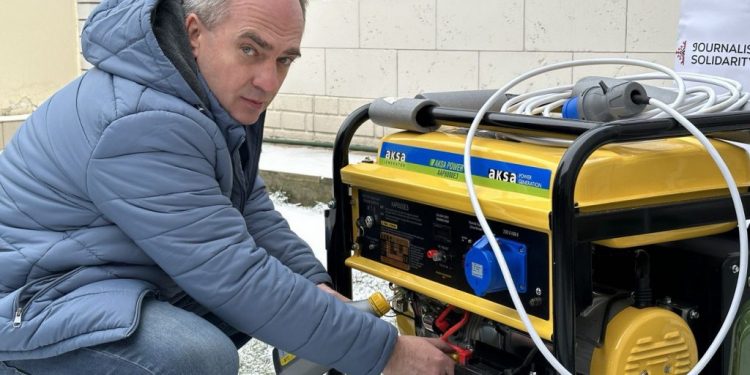Constant attacks by Russia make the Journalists’ Solidarity Centers (JSC) constantly ready for power outages as they work as co-working spaces, allowing journalists to come to get a workplace with all the necessary equipment.
The National Union of Journalists of Ukraine (NUJU) provided its network of JSCs with everything necessary for work, having ensured their operation in the event of power outages. Fortunately, the Centers have not had to turn their generators on this winter, but they must be constantly ready for extreme situations. So, JSCs conducted a preventive inspection of the equipment.
The Zaporizhzhia JSC, in particular, says that due to the constant shelling of the city, there is still a threat of a blackout. Therefore, they checked the existing equipment and performed a trial run of their generator.
“Everything works stably, the light, communications, and the Internet will be provided under any conditions. For more than two years now, the NUJU’s JSC in Zaporizhzhia has been doing everything to ensure that local media and displaced journalists can work fully under any conditions. Modernly equipped workplaces have been created here. They provide constant connection, light, and the Internet. This became possible thanks to the significant technical assistance of UNESCO and our foreign colleagues, who provided JSCs with computers and office equipment, as well as a generator, Starlink, a powerful power bank, etc. Therefore, despite all the force majeure, we work without interruption,” the Center notes.
The Dnipro JSC also works without failures, where a test run of the electric current generator was conducted the other day. Thanks to NUJU‘s active cooperation with the UNESCO headquarters, media people have their own “point of invincibility” in Dnipro.
“Energy independence of the JSC in Dnipro is an additional opportunity to support colleagues in wartime conditions. Most of the newsrooms are located in the central part of the city, so we could partially solve the issue of the uninterrupted work of journalists,” says JSC coordinator Natalia Nazarova.
Compared to the eastern and southern regions, the Chernivtsi Region is a safer region. However, even here, they take care of their energy independence in case of emergencies because media workers need to work under any circumstances.
In Chernivtsi, there is a permanent co-working space for media workers, where up to 10 workplaces are arranged, and there is constant Internet and mobile communication. In the event of a power outage, it is possible to start your own generator, which provides an uninterrupted power supply for a long time. Thanks to support from UNESCO, including the provision of generators from the NUJU, in case of power outages, there is an opportunity to charge gadgets, use the Internet and mobile communication, or simply drink coffee and chat with colleagues.



ABOUT JSC
The Journalists’ Solidarity Centers is an initiative of the NUJU implemented with the support of the International and European Federations of Journalists and UNESCO. The initiative is designated to help media representatives working in Ukraine during the war. The Centers operate in Kyiv, Lviv, Ivano-Frankivsk, Chernivtsi, Zaporizhzhia, and Dnipro and provide journalists with organizational, technical, legal, psychological, and other types of assistance.
ABOUT UNESCO
UNESCO is the United Nations Educational, Scientific, and Cultural Organization. It contributes to peace and security by promoting international cooperation in education, sciences, culture, communication, and information. UNESCO promotes knowledge sharing and the free flow of ideas to accelerate mutual understanding. It is the coordinator of the UN Action Plan on the Safety of Journalists and the Issue of Impunity, which aims to create a free and safe environment for journalists and media workers, thus strengthening peace, democracy, and sustainable development worldwide. UNESCO is working closely with its partner organizations in Ukraine to provide support to journalists on the ground.
The designations employed and the presentation of material throughout this digest do not imply the expression of any opinion whatsoever on the part of UNESCO concerning the legal status of any country, territory, city, or area or its authorities or concerning the delimitation of its frontiers or boundaries.
The authors are responsible for the choice and the presentation of the facts contained in this digest and for the opinions expressed therein, which are not necessarily those of UNESCO and do not commit to the organization.
NUJU Information Service

 THE NATIONAL UNION OF
JOURNALISTS OF UKRAINE
THE NATIONAL UNION OF
JOURNALISTS OF UKRAINE
















Discussion about this post